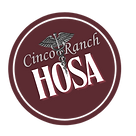
Forensic Science
Is this event right for you?
You might enjoy this event if you:
-
Are interested in applying forensic science knowledge to solve real-world cases.
-
Enjoy working as a team to analyze evidence, interpret data, and draw conclusions.
-
Want to explore careers in forensic science, pathology, law enforcement, or criminal investigation.
-
Prefer a combination of written testing and hands-on case study analysis.
-
Value precision, attention to detail, and critical thinking in evaluating forensic evidence.
Event Details
Detail
Info
Teamwork Event
Team of 2 competitors
Written test – 50 multiple-choice questions, 60 minutes
Case study analysis – 45 minutes
Round 1: 60 minutes
Round 2: 45-minute case study analysis
Highest Round 1 test score
Forensic history, crime scene investigation, toxicology, DNA analysis, anthropology, entomology, forensic psychology
TYPE
FORMAT
ROUND 1
TIME LIMIT
TIE BREAKER
ROUND 2
FOCUS AREAS
Topics on the Test
1. Forensic History and Careers– 10%
2. Crime Scene and Death Investigation– 20%
3. Forensic Toxicology and Pharmacology– 20%
4. Forensic Anthropology– 10%
5. Forensic Entomology– 10%
6. Identification of Blood, Biological Fluids, and Stains– 10%
7. Techniques of DNA Analysis– 10%
8. Forensic Psychology and Psychiatry– 10%
Study Materials & Practice
Key Official References:
-
Bertino, A., Bertino, P. Forensic Science Fundamentals. National Geographic Learning/South-Western Cengage Learning, latest edition
-
Bell, S. Forensic Science. Taylor & Francis Group/CRC Press, latest edition
-
Optional: Simmers et al., DHO: Health Science; Ehrlich, Medical Terminology for Health Professions; Frazier, Essentials of Human Diseases and Conditions
Event Day Checklist:
-
Photo ID for both rounds
-
Two #2 pencils (non-mechanical) with erasers
-
Two highlighters (optional)
-
Professional business attire or HOSA uniform (Round 2)
-
Know the General Rules & Regulations
Tips from Previous Competitors
-
"The Bertino, A., Bertino, P. Forensic Science Fundamentals textbook was extremely helpful! Because it is quite long, I recommend starting as soon as possible. I personally tried my best to read at least 2 chapters per week and take notes on each one. Also, practice analyzing past case studies (you can find them online)." - Leilani Wagner (2025)
-
"To do well, I suggest that you understand and memorize fingerprint patterns, blood spatter analysis, and DNA profiling. Be familiar with toxicology, entomology, and forensic anthropology. When it comes to the case study, make sure that you know the 4 main parts: the time of death range, immediate cause of death, manner of death, and evidence to support your conclusion." - Rania Sadiq (2025)
-
""